Cousin capital: India's Mehta family on the risks and rewards of angel investing
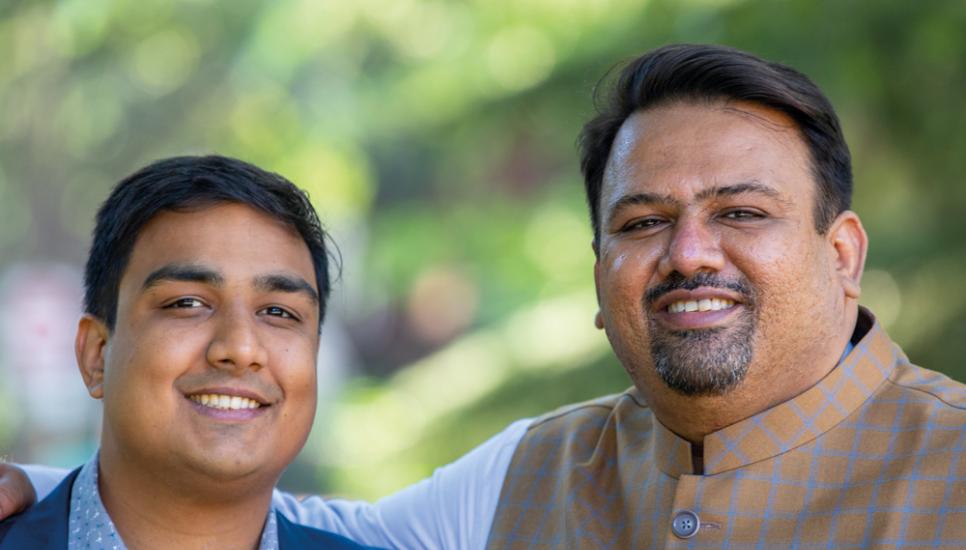
There must be something in the Gujarat water. India’s westernmost state is the birthplace of some of the country’s best-known businesspeople—from Mukesh Ambani, to Azim Premji, and Uday Kotak. Enterprise is a cultural obligation for Gujaratis—with just 5% of India’s workforce, the state produces 22% of the country’s exports.
Now a cohort of cousins and one nephew, from India and the US, are using family capital to invest together in early stage startups globally as Mehta Ventures. To many family offices that might be a recipe for disaster, but for the Mehta family this blend of age, experience, and enthusiasm is putting a unique spin on how family offices invest in venture capital.
Much of Mehta Ventures’ strategy can be put down to Sanjay Mehta. An entrepreneur-turned angel investor, the 49-year-old has invested in more than 100 startups so far across multiple sectors. He has had several notable exits, the best known being India’s largest budget hotel chain OYO Rooms, where he made 280 times the capital he invested in the company.
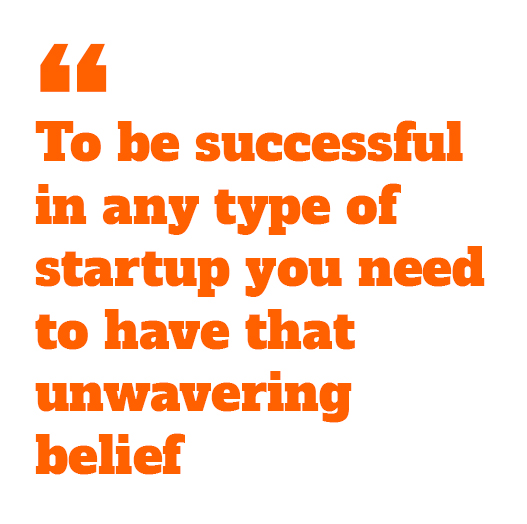 “I remember Sanjay’s conversation with me,” recalls his 29-year-old cousin, Hershel, who joined Mehta Ventures in 2017.
“I remember Sanjay’s conversation with me,” recalls his 29-year-old cousin, Hershel, who joined Mehta Ventures in 2017.
“He said, ‘Hershel, you are not broke until you have maxed out your credit cards.” And I laughed at him without understanding what he was really telling me about how to become a successful entrepreneur.
“To be successful in any type of startup you need to have that unwavering belief,” says Hershel, a revelation he only came to later on.
Hershel says he has countless examples of successful entrepreneurs in his family, where people take pride in starting and owning their own businesses.
[There is] this hustler mentality within Gujaratis to always have some sort of trade,” he says.

No closed doors
This go-getter mindset can be traced back to their grandfather. Traditionally from a nut farming family in Gujarat with roots back into the early 19th century, their grandfather moved to Mumbai in the 1940s and established his business and strongly emphasised education to his four sons and daughter.
Sanjay is the son of his grandfather’s eldest son, and Hershel the son of the youngest son—they have six other cousins. Sanjay was raised in Mumbai in a joint family, with uncles, aunts, and cousins all living under one roof where everything, down to grades in a report card, were shared.
Despite growing up in the United States, Hershel was raised with the same values of openness.
“The communication is constant. My parents made it very clear that my cousins are my brothers and that is it. We let everybody know what is going on. There is no such thing as a closed door in our household,” says Hershel.
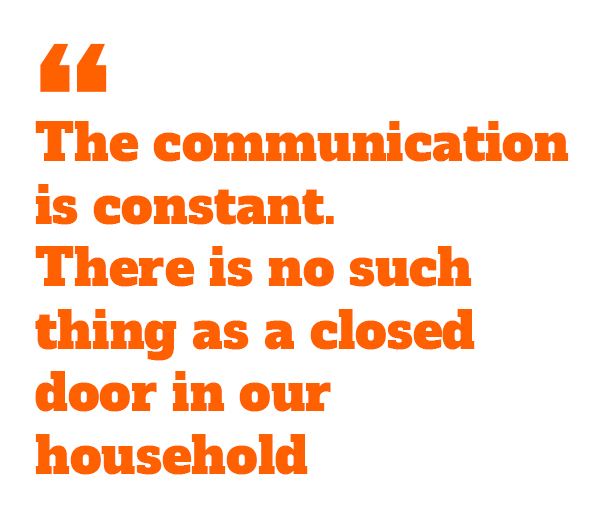
It was family that gave Sanjay a start in his business career. While studying engineering at Mumbai he used to frequently visit his grandfather’s chemical trading business where he got an insight into how to read balance sheets. This led on to an interest in stock markets after this grandfather introduced him to various stockbrokers. So when it came time to graduate in 1993, Sanjay decided to set up his own business Globalware Systems and Solutions using some family capital. When he found Globalware Systems and Solutions wasn’t scalable, he embarked on an eye-opening experience running two dot com companies in India after going to the US for a very brief stint from 1999-2000. Both failed, taking with it a lot of his personal wealth.
After the dot com bust he founded Udyog Software India Ltd, which became the largest selling excise software company in packaged software in the country. He exited this venture when US-based Adeaquare Inc wanted to buy into the Indian markets and then started business software and analytics company MAIA Intelligence, which was bought by listed Indian company Datamatics in 2015. With two successful exits under his belt, Sanjay had been investing in real estate and got into limited partner investing with Aditya Birla Private Equity Fund, which led to direct venture investing in startups and the genesis of Mehta Ventures.“I never worked for anyone. So for me, the support of the family saying, ‘We are always there’, was paramount. That gives you a lot of confidence in your risk-taking ability.
“If it was not for family, I do not think I would have jumped into the venture investing business,” says Sanjay.
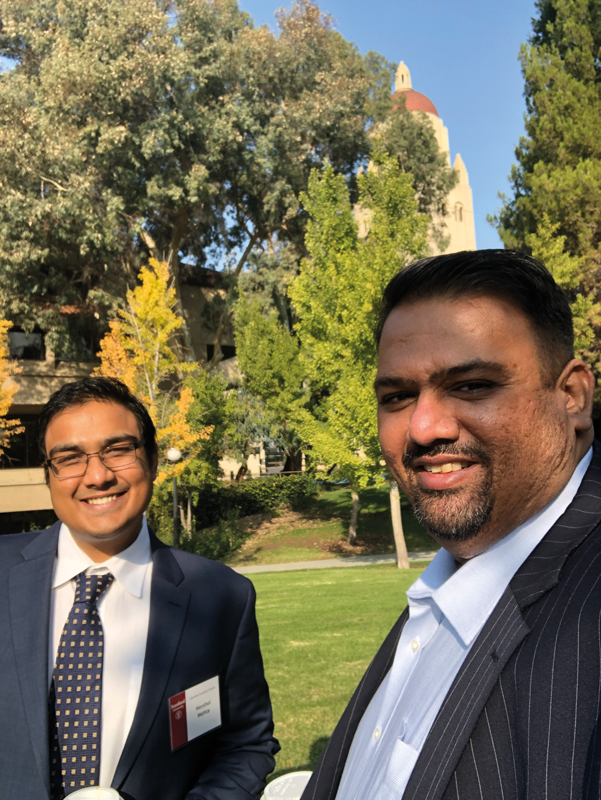 Family was critical in Hershel’s decision to join Mehta Ventures too. In his case, Sanjay cemented his resolve during a trip Hershel made back to India in 2017 to volunteer at a non-government organisation Aarti Home in Southern India.
Family was critical in Hershel’s decision to join Mehta Ventures too. In his case, Sanjay cemented his resolve during a trip Hershel made back to India in 2017 to volunteer at a non-government organisation Aarti Home in Southern India.
It took a while to convince him, since Hershel had been through his own four-year startup struggles with a mobile app Zoupple.
“Hershel always had an entrepreneurial bend of mind,” recalls Sanjay.
“I’ve always loved startups,” echoes Hershel.
“It was my dream since I was a kid to be an entrepreneur and founder. Sanjay said, ‘This [Mehta Ventures] is going to get you closer, this is going to be like the true avenue for you to do everything that you want to do’. It was instant buy-in for me.”
Hershel graduated from the University of Miami in 2012 and became a qualified CPA before completing an executive MBA in Venture Capital at US business school Wharton, Pennsylvania in 2018. It was the Wharton course that convinced Hershel to take the plunge which in turn got the rest of the family excited about Mehta Ventures.
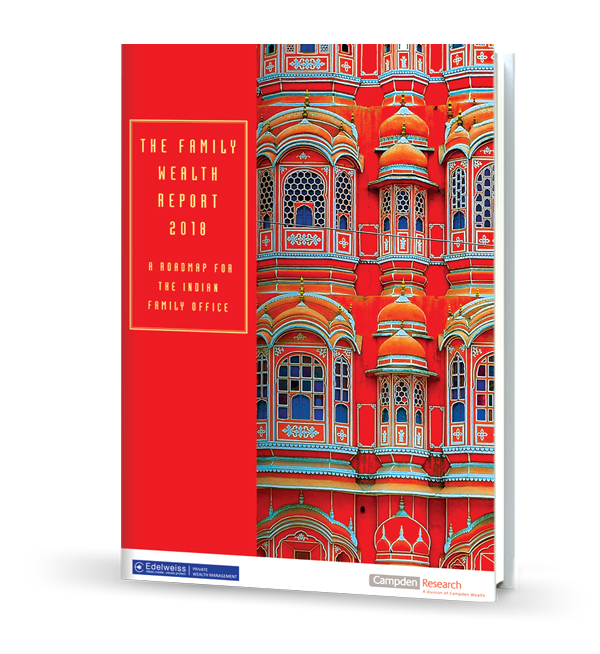
The family provided a pool of capital, which when combined with Sanjay’s connections and Hershel’s analytical approach gave the format to start investing directly in startups.
Despite the glamorous appeal, investing in cool new startups is not everyone’s cup of tea—especially among India’s traditionally risk-averse wealth holders. The Family Wealth Report 2018: A Roadmap for the Indian Family Office found only 12% of the average portfolio is allocated to private equity direct investments, with an undefined amount in startups.
Sanjay agrees with this conservative allocation. He advocates investing no more than 5% of a family’s total wealth in venture capital.
For its part, while Mehta Ventures has a majority shareholding in Core Media Group, a fast-growing IT media and marketing company in India within the business-to-business (B2B) technology space, all of its other investments are direct investments and startups.
What does their portfolio look like?
Since March 2012, Mehta Ventures has invested in more than 100 companies and had 12 exits with an achieved internal rate of return (IRR) of 103% versus the industry average of 30%. This has returned its family investors 19 times the capital they originally invested.
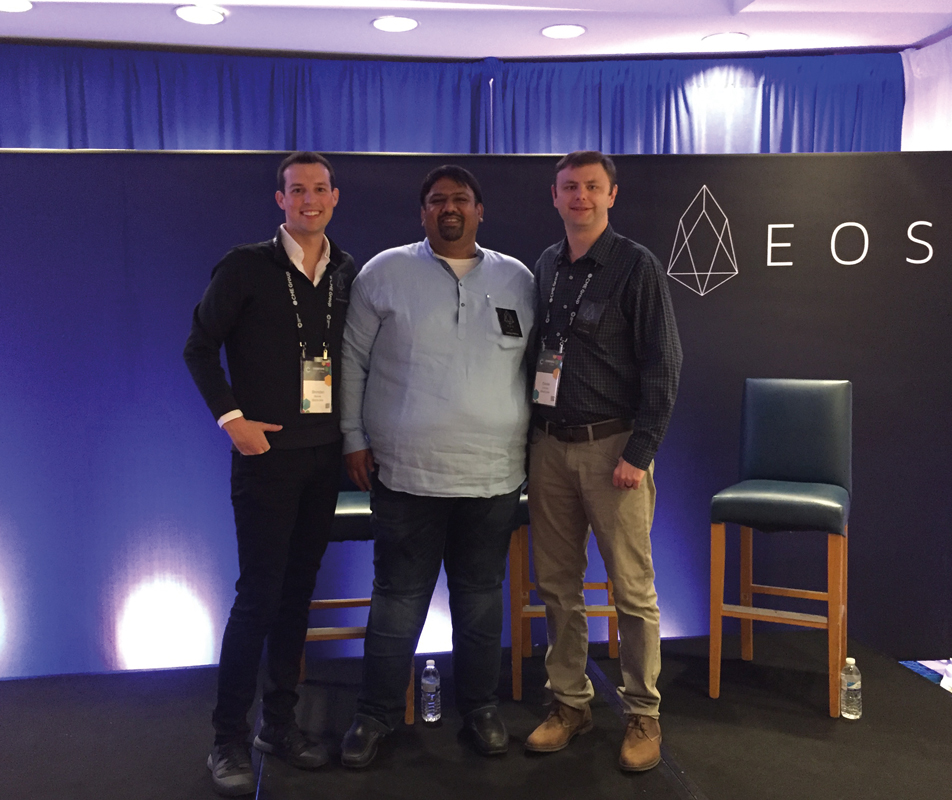
Its current portfolio value, or the exit value based on the last round, stands at 7.4 times the capital investment.
The goal is to find those evasive unicorns, privately-held startups valued at more than $1 billion. Fortunately for Mehta Ventures, it has had two, OYO Rooms—India’s largest budget hotel chain, and the Peter Thiel-backed blockchain operating system Block.one in which it was an early investor and had a partial exit.
Their investments are built on a thesis of patient capital—where supporting an enterprising founder is more important than driving through a profitable exit within a typical venture capital timeframe.
“We do not see [startups] as modes to make money. We are not into quick flips. We want to be very patient. We can wait, and wait for these entrepreneurs to grow,” says Hershel.
And it has on occasion backed a failed founder again with a new venture.
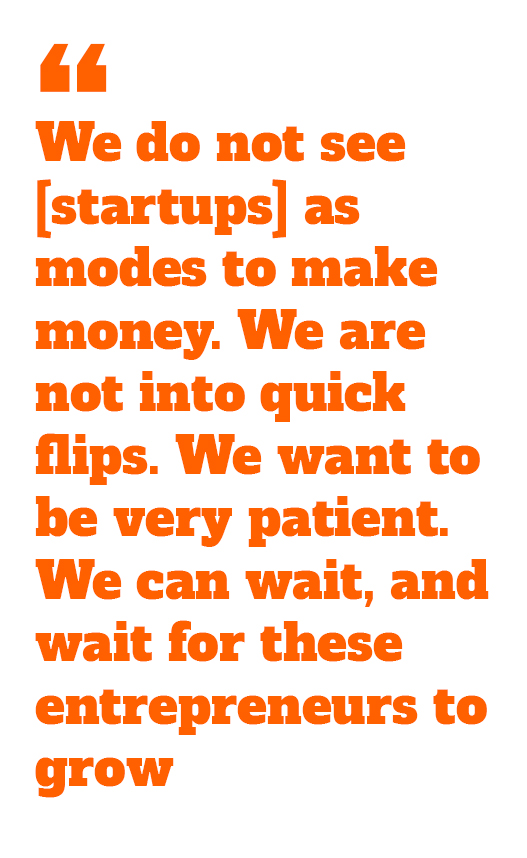
Scalability is a factor, both for Indian companies looking beyond the country’s borders and international companies looking to get a foot into the Indian market.
“There has to be a global picture, and we want to find investments that touch a larger sum of people,” says Hershel.
He is also very keen on being the first ‘Indian money’ into an international startup.
“One day every startup will need to look at India as a potential market,” explains Hershel.
“Sanjay has the connections to help companies scale to India. It is pretty crucial that when we invest internationally we can help these companies get into the challenging Indian market.”
The elder cousins now have a third addition to their full-time deal-sourcing set at Mehta Ventures, their 23-year-old nephew Vatsal Kanakiya. A computer science major from KJ Somaiya College of Engineering in Mumbai, Hershel describes him as a “born techie and VC. He naturally fits in as a technology diligence whiz kid and natural deal finder.”
The ability to combine and strengthen a family enterprise in the third generation is a rare feat, especially since many families in other parts of the world are struck by the ‘cousin curse’— when competing cousins threaten a business by trying to take it in different directions.
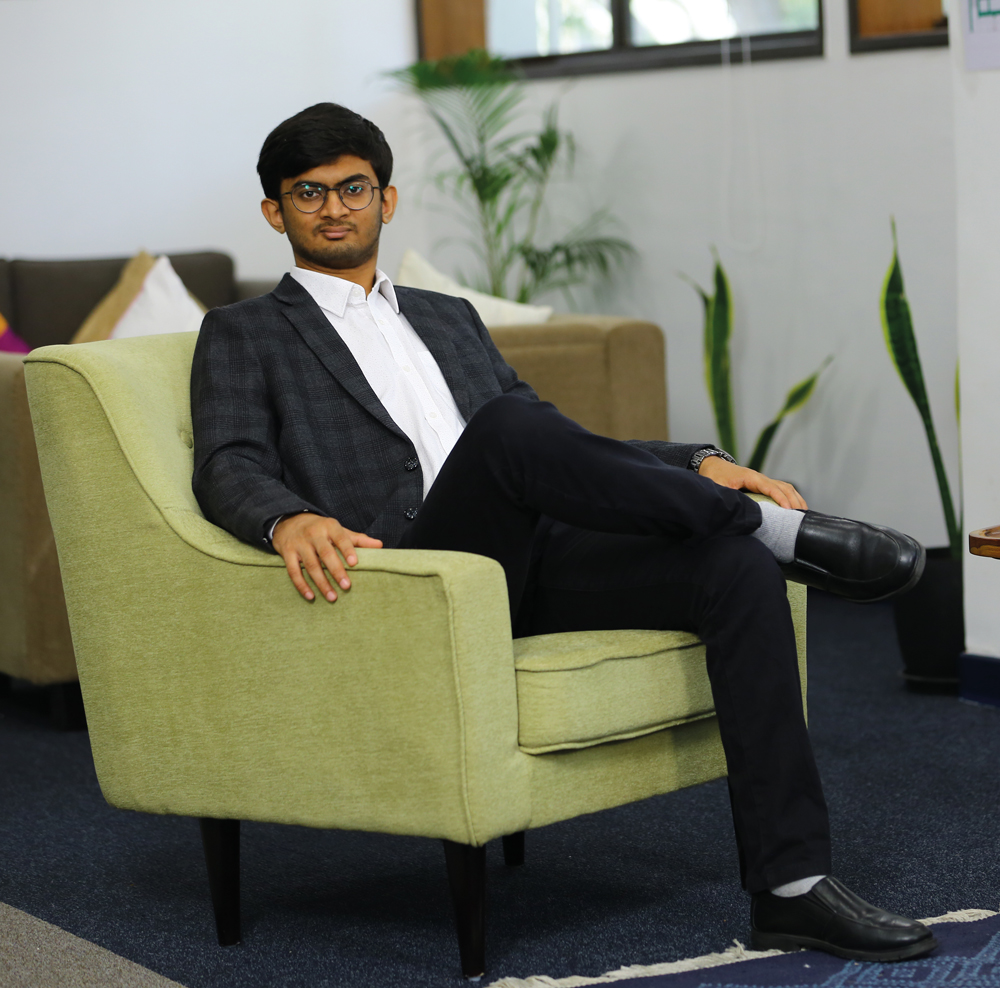
So are there any secrets Mehta Ventures’ can share on maintaining relationships with cousins?
“No secrets here,” jokes Sanjay.
“I felt that if somebody could join me that would help accelerate the business, they would gain so much from it. And that’s what I think it has proved working with Hershel.
“While I was doing whatever best I could sitting out of India, with the US arm opening we are now having the best of the deals coming globally,” says Sanjay.
On a day-to-day basis, Sanjay sets the overall strategy, how much capital to deploy, assessing exit opportunities, shareholder agreements and how to structure deals. Hershel sources deals, ensures portfolio companies are reporting well, and liaises with the founders, while Vatsal does all the technology due diligence.
“The dynamic works well,” says Hershel, built on mutual respect and familial ties.
“Sanjay has a deep vision and he is a natural born operator. I’m very keen now to follow guidance and leadership and execute on instructions. And now we are adding a third element [with Vatsal] who sees something completely different and can actually validate deep levels of complicated technology.”

No tourists
The Mehta Ventures portfolio is sector-agnostic, ranging from medical devices to B2B software-as-a-service companies, something the cousins see as a strength, rather than a weakness.
In the past eight months, the three have done 21 US deals. This is in part because they now have access to top quality deal flow by co-investing with established funds, like Khosla Ventures, and having a seat at Plug and Play in Sunnyvale, California—the most active venture capital firm in Silicon Valley.
They are also aided by the freedom to deploy capital which has helped them make investment decisions much quicker.
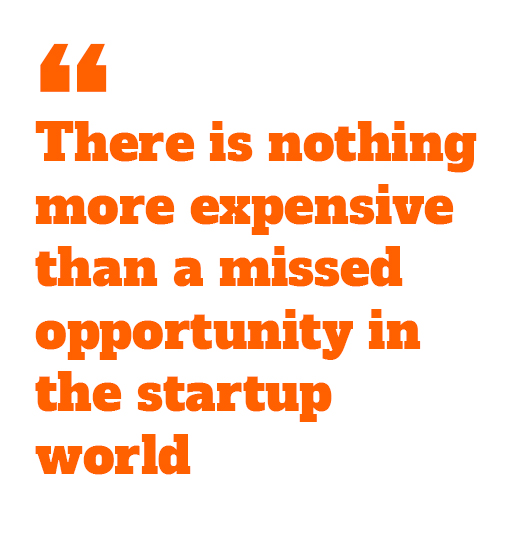 “There is nothing more expensive than a missed opportunity in the startup world,” muses Sanjay.
“There is nothing more expensive than a missed opportunity in the startup world,” muses Sanjay.
“I’m not answerable to everyone,” he says.
“We are using family money, but it is not like third-party capital, where if I don’t report it on a yearly basis nobody is going to come after my neck.”
The small nature of the team means that communication happens almost constantly between the three, rather than through a formal board structure. They bring in lawyers and accountants to assist when they need an external adviser or consultant to help with financial structuring. Hershel collates updates on their portfolio companies and sends them out to the family investors.
Mehta Ventures is one of several Indian family offices engaging in the startup venture capital space, so do the Mehtas have any advice for other Indian next-generation members thinking of getting in on the act?
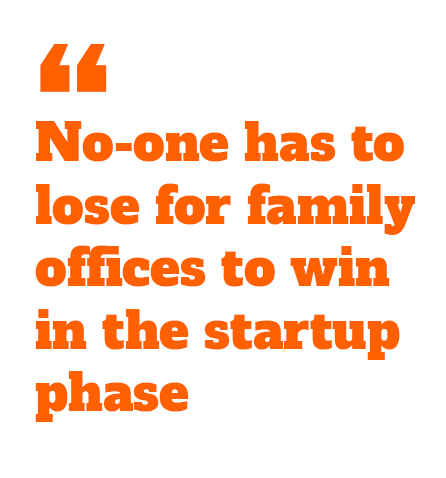 “No-one has to lose for family offices to win in the startup phase,” underlines Sanjay.
“No-one has to lose for family offices to win in the startup phase,” underlines Sanjay.
“Family offices are no longer considered tourists in the startup space. They are finding startups very attractive as it’s exciting to fund the future, engage with the founders, and small startups are creating big winners.”
Sanjay advises investing in a minimum of 10 direct investment and startups.
“Otherwise it is like buying in a lottery if you do one or two. And do not invest more than 5% of the total assets of your family’s wealth, because this is a risky asset class”, he warns.
“Startup investing is not about how many exits you had, it is about what kind of value exit you created. Your one exit with 100x is much better than five exits of 10x each.”
Hershel advises families and individuals not to shy away from opportunities, to be visible and to engage.
“In this space that’s a mistake. Being visible, always willing to talk, showing up, and engaging with founders is crucial. You want to be ultra-competitive in the types of deals you are seeing, and the best way to do that is to be more visible.”
New year, new opportunities
After an action-packed 2019, where are Mehta Ventures looking to next?

New geographies and new personnel are top of the agenda. It would like to invest in South-East Asia in the next 12-36 months, and explore Israel and other places with startup opportunities in the next 3-5 years.
They also want at least one more family member to join them.
“I do not think that there will be a better time than now for Indian families to capitalise on this startup ecosystem,” says Hershel.
“It’s very robust and it is full of new entrepreneurs that are looking at Indian startups, that have been massively successful, as their idols. You are not seeing this cultural shift of Indian talent leaving the country to go elsewhere. They are going to stay home and build in India. So the opportunity for Indian families to really capitalise on the Indian market is phenomenal.”
It has also become the sponsor of a new fund 100X.VC – the first VC to invest in early stage startups using India SAFE Notes.
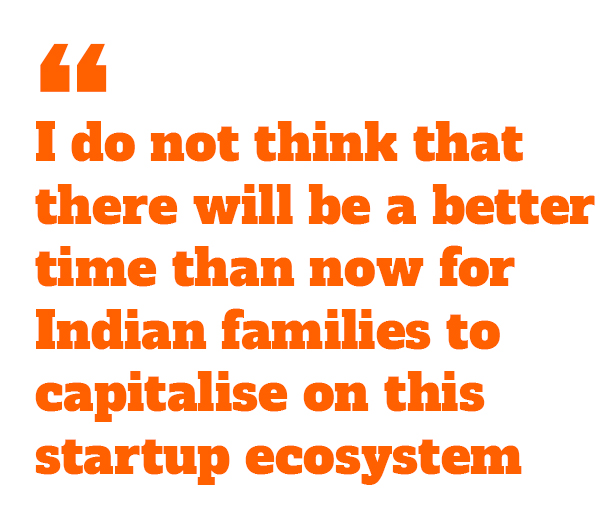
One area it won’t be going into at present is cannabis. While Hershel is very keen to start investing in the rapidly growing market, the reaction from the family has prevented any investments.
“We had a little pushback from the family. So we will not begin that journey. We are not sure how it will pan out, but hopefully we will see things changing in that space,” says Sanjay.
Yet exposure to impact investing and environmental, social, and governance (ESG) investing is becoming more and more part of their decision making.
“We had an opportunity to invest in Bitcoin.
Because Bitcoin uses a lot of energy we ended up investing in a coin called EOS, which is a coin, and does not consume electricity.”
From cryptocurrencies to cannabis, there are a plethora of new companies and industries for Mehta Ventures to invest in. How many other family offices are set to join them in the hunt for the next unicorn?






